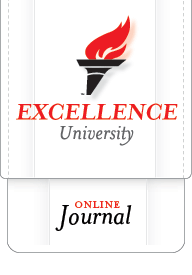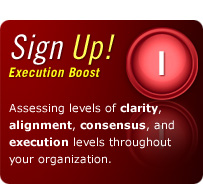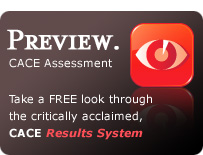STEAM Tip: Accessibility
December 21st, 2009
Sometimes very simple things can create very powerful outcomes; the problem with simple and powerful methods of increasing satisfaction and success is that we may fail to notice and/or implement simple solutions to big problems. If there are any goals that you are struggling to complete on time or at high levels of quality, you may benefit from thinking about how to address a simple, but often powerful method of promoting success: increasing your access to materials or information necessary for regular achievement of your most important goals. Goal-setting in ways that boost accessibility to important resources can be a critical ingredient to success; here are some methods of increasing access to important materials/information in ways that can promote high-quality goal achievement:
Some of these ideas are quite simple, and because they are so simple, you may wonder if they are worth implementing. It has been my experience that overlooking simple methods of increasing the chances of success and/or satisfaction is a powerful method of blocking progress and well-being, so I encourage you to think twice before overlooking these ideas:
- Keep helpful materials in places where you are likely to use them. The easier it is to access something, the more likely it is that we will utilize it on a regular basis. For example, if there is a book that you would like to read/review on a regular basis, it is more likely that you will regularly read it if you keep it on your desk than if you keep it on a bookshelf across the room; books that are on bookshelves across the room are less likely to be retrieved and opened than books kept within arm’s reach in places where we regularly sit.
- Keep distracting materials in places where you are less likely to be distracted by them. The same basic principle mentioned in the paragraph above applies to this accessibility tip as well; the difference is that we are now using it to block accessibility to distracting materials/information. For example, if you are often distracted from reading a book that you want to read by your phone or surfing the internet/social media sites, it can be helpful to keep your phone and/or computer off of your desk (or, if the computer must be on the desk, to close out distracting websites until you have read as much of the book in question that you would like to read). If the book you want to read is always easily accessible and the distracting phone and/or computer is not as easily accessible, you will be more likely to read the book and less likely to get distracted by your phone and/or computer.
- Keep important information on your mind (or, accessible to your memory). What we regularly think about/remember often drives what we do, so keeping materials and information that can be useful to the achievement of our goals on our minds can be an extremely important ingredient to success and satisfaction — especially in this age of information overload, where it can be very easy to forget about useful resources while being constantly flooded with less useful information. For example, you may have a book, quote, or website that helps to keep you, informed, inspired, and/or motivated to achieve your most important goals in life. It can be very helpful to keep this information on your mind by keeping helpful resources in clear view, writing reminder notes to yourself to review them, and/or asking others to remind you to utilize these resources regularly.
- Minimize thoughts about less important/distracting information. As mentioned in the paragraph above, we live in an age of information overload, where we are exposed to a vast amount of information that may not be very helpful to the achievement of our goals. For example, there are many people, books, websites, television programs, and advertisements that can encourage us to spend time ineffectively, pursue goals that are not in our best interests, or give up on our goals. It can be very useful to notice when this is happening and to minimize time spent listening to these people, reading these books, looking over these websites, and/or watching these shows/ads. Distractions are everywhere, so decreasing our access to them as often as possible can be a crucial step toward achieving more of the most important goals in our lives.
- If important information/materials are not initially easily accessible to you, keep thinking about ways to increase ease of access. It can be easy to give up on accessibility if access if not initially easy to cultivate. For example, if the gym we want to work out at is not close to our home and/or not currently affordable, we might just conclude that access to the equipment necessary for good physical health is going to be difficult for us. Rather than giving up on increasing accessibility to important resources, it is often important to continue to strategize about methods of putting accessibility to work for us when resources are not initially easily accessible. For example, you can look for a gym closer to your home, a less expensive gym, purchase exercise equipment that you can use at home, and/or engage in exercise methods that do not require equipment until you can move closer to the gym and/or afford its monthly fees. The important thing is to keep searching for methods of increasing access to resources that can help you accomplish goals; there are so many ways to accomplish so many things that giving up on increasing accessibility is rarely (if ever) a reasonable course of action.
If you think that more access to important resources (and/or less access to less important information/materials) could be helpful to the accomplishment of certain goals, you may wish to keep this article in mind while goal-setting. For example, the goal “Complete an important project” could be modified to a goal like this one: “Place project-related materials on my desk, move materials that are not related to my project away from my desk, and post reminder notes to work on the project in places where I am likely to be distracted (e.g., on my computer) and where I am likely to see them regularly (e.g., in my calendar).” Goal-setting with accessibility in mind will help ensure that you will have more access to helpful resources (and less access to distractions) in your life, making goal achievement more likely.
FINAL NOTE: If you were linked to this article by a video or email, please return to that link and proceed with any other instructions that you deem helpful. If you are using the Mission Fulfillment System to identify and track goal achievement, please keep this article in mind when you develop and/or modify your goals on the system. For more articles related to improving STEAM, see our Self-Mastery, Interpersonal Expertise, and Mission Connection tips.
Article Filed under: 4. Accessibility Tips



2 Comments Add your own
1. Martin Heesacker | October 27th, 2014 at 3:27 pm
I love the accessibility point. There is a closely related point about accessibility which is summed up in the expression “If everything is accessible, nothing is accessible.” This expression reflects my experience and that of most others with whom I have discussed this, that when there is lots of clutter or there are lots of computer windows open or when there are too many things crying out for your attention (music on, laptop on, texts coming in, knock on the door, lots of cool things laying out to read, email notices popping up on the screen), you don’t have enough real and uncontested access to what you do need to complete one specific SMART goal, so accessibility is a problem, just the same as when you planned to go for a run and forgot your shoes. Imagine your running shoes are somewhere in a stack of thousands of dress shoes and boots–not good.
What’s the solution? Clean up the mess, close out windows not needed, shut off or at least mute the phone, shut off the pop-up function on email and instant messaging, put a do-not-disturb sign on your door for that period–whatever it takes so that you have access to what you need and not much if any access to distractions.
2. Evita P | March 23rd, 2016 at 10:11 am
I think the point on accessibility helps to convey the importance of uplifting your goal. It’s one thing to jot down a goal that you’d like to complete by the end of the week, but it’s another trying to remember it and accomplish it. Goals are so easily formulated and dismissed because they often lack smaller supporting elements like accessibility to help them grow. I probably set 50 simple goals for myself that I want to get accomplished each day (clean my car, buy some white-out, print out running orders for lab…). But by the time it hits 9:00 pm, I’ve probably completed only five. Most of the time it is those five goals that I recited to myself countless times over, giving them more value and support in what it would mean to me personally if I accomplished them. That could mean reminding myself “If I print out these running orders today, tomorrow I can come later to lab!” or even “If I wash my car now, Dad will have to keep his mouth shut about my car being messy every time I come to visit. That’ll show him!”
Perhaps if my goal-setting wasn’t limited to just the action of writing some letters down on my calendar but rather recitation and a reminder of the goal’s significance, I’d get more done.
Trackback this post | Subscribe to comments RSS Feed
Leave a Comment
Some HTML allowed:
<a href="" title=""> <abbr title=""> <acronym title=""> <b> <blockquote cite=""> <cite> <code> <del datetime=""> <em> <i> <q cite=""> <s> <strike> <strong>